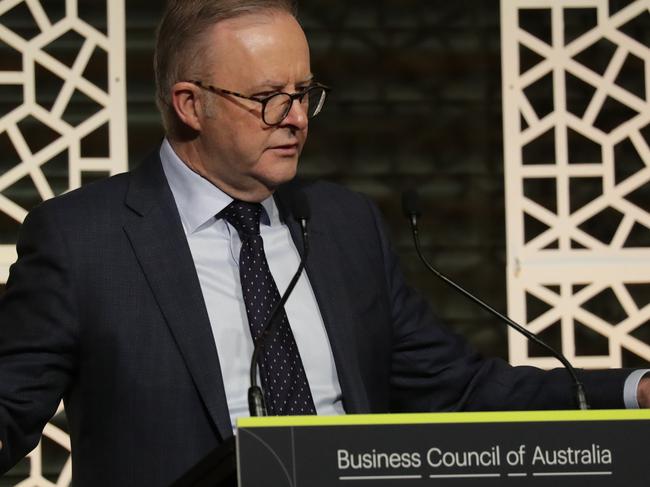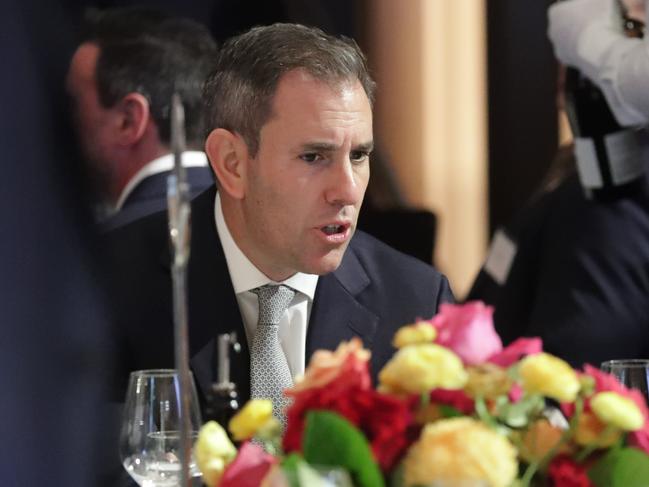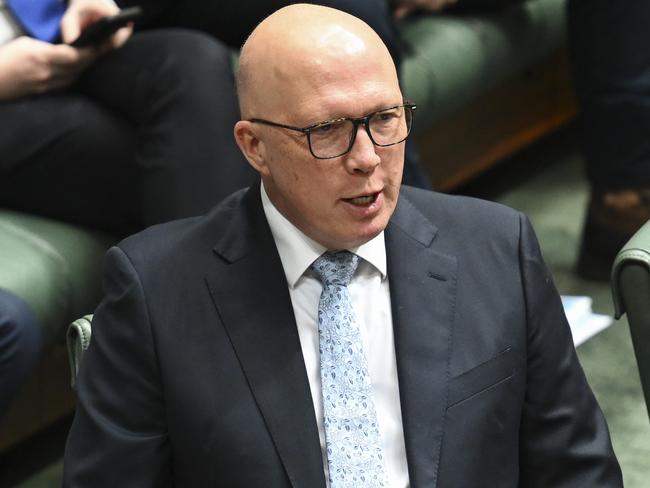Rita Panahi: Big business now awake to the woke Albanese government
Corporate Australia is finally waking up to the threat Labor poses to the business sector, as the Albanese government, filled with radical ideologues, finds new and creative ways to thwart development.
Rita Panahi
Don't miss out on the headlines from Rita Panahi. Followed categories will be added to My News.
Corporate Australia is finally waking up to the threat Labor poses to the business sector. The Anthony Albanese government is filled with radical ideologues lacking business acumen and experience.
In fact a number of federal ministers appear to be openly hostile to the business community.
They are finding new and creative ways to thwart development including the absurd reasoning behind vetoing a $1bn goldmine in NSW that would’ve created 800 well-paying regional jobs and hundreds of millions in taxes and royalties for the state government.
Albo’s crew resembles the Daniel Andrews/Jacinta Allan Labor government far more than the infinitely more sensible and capable Chris Minns Labor government in NSW.

Federal Labor’s industrial relations agenda has emboldened the union movement and it should shock nobody that the corporate sector is warning that businesses are opting to invest overseas rather than tackle the anti-business, high regulation, high tax Australian market. The gloves were off at the annual Business Council of Australia dinner earlier this week – attended by the Prime Minister, Treasurer Jim Chalmers and a number of ministers including Chris Bowen, Clare O’Neil and Michelle Rowland – where BCA president Geoff Culbert and chief executive Bran Black detailed the challenges that Labor’s policies were causing employers.
“I’ve spoken to many CEOs who have said they are far more cautious about hiring after the government’s raft of recent workplace changes,” Mr Black said. “We’re steadily increasing, not removing, regulation – making it harder to run a business.”
He also warned that these increased taxes and regulations would see companies shift their investment and operations overseas. “All of this reduces our competitiveness as a nation. And the upshot is best illustrated by the fact that I now have members – major employers – who are now actively choosing to invest overseas rather than in Australia,” Mr Black said.

Representing some of the biggest employers in the country, including Wesfarmers, Qantas, the big four banks and mining giants Hancock Prospecting and BHP, the BCA is a powerful body that under the leadership of former CEO Jennifer Westacott was too often preoccupied with pushing Leftist agendas from net zero to the Indigenous voice.
The old BCA regime including the CEO and president penned an impassioned piece arguing that business had a role to play in the voice debate.
Westacott argued for “the long overdue recognition of Aboriginal and Torres Strait Islander peoples as the First Peoples of Australia” and claimed the voice would facilitate dialogue between Indigenous Australians and the business community. “Now is the time for our country to move forward together to build a more prosperous nation for all its citizens,” she wrote. “Constitutional recognition of the Voice will give Indigenous Australians a stronger foothold in our democracy. It will encourage participation and accountability at every level.”
Throughout the Voice debate, big business demonstrated that it was hopelessly out of touch with the overwhelming majority of Australians with the referendum resoundingly rejected, other than by the bureaucratic class of the ACT. Not only did the corporate sector neglect its key duty to protect shareholder value and instead indulged in political activism, but it succeeded in damaging the reputation of the sector. BCA members including the likes of Qantas and the big banks were also major donors to the doomed “yes” campaign that sought to enshrine racial division and privilege into the Australian constitution.
Naturally, the majority of Australians who voted “no” did not appreciate the corporate class advocating for and donating to the “yes” campaign.

Opposition Leader Peter Dutton who declined to attend the BCA dinner won’t soon forget the manner in which corporates pushed woke policies while neglecting to fully appreciate Labor’s radical agenda.
Mr Culbert acknowledged in his speech that big business had “scored too many own goals” and must take responsibility for some of the ill-will aimed its way. He also called on the federal government to do better to support businesses, big and small, which employ 6 out of 7 Australians.
“The Australian business community has never faced greater headwinds,” he said.
“It may be popular to bash big business, but in doing so we are making success taboo in this country – and that is not consequence free. Why would anyone want to invest in Australia where even a modicum of success is criticised?”
It’s refreshing to see the BCA actually advocate for the business community instead of pushing woke politics.
To hear the BCA leadership quoting Ronald Reagan is a giant step in the right direction.
Rita Panahi is a Herald Sun columnist



